Eco‑Adventures: Green Skills through Sport & Nature
15–21 October 2025 · Międzybrodzie Bialskie, Poland

About the project
Where & when: 15–21 October 2025, “Społecznik” Work & Education Centre, Międzybrodzie Bialskie (Międzybrodzkie Lake, Little Beskids).
Main themes: green skills; environment & climate; building bridges across cultures and generations.
Project partners
- Youth Empowerment (PT) — youthempowermentpt@gmail.com
- 2Europia (ES) — info@2europia.com
- Greenhope Group Association (RO) — greenhope@gmail.com
- Coordination (PL): Spółdzielnia Socjalna Zielone Śląskie
What we did — highlights
- Lakeside integration: circle round, name‑through‑movement, Bingo & Dixit; Polish cultural evening.
- Sport & culture: national warm‑ups, team games, dance elements; Spanish rhythms & tastes at night.
- Nature in focus: full‑day mountain trek + “Climate in the Mountains” workshop with team tasks & picnic; Portuguese evening.
- Everyday choices, real impact: food‑waste & conscious shopping workshops; mini‑posters and graphics (A broth a day…, Do you have leftovers?).
- Green jobs & local actions: teams “Eco‑Designers”, “Green Educators”, “AI Regulator”, “Food Collector”, “The Green Lighthouse”, “Green Tour”.
- Finale: short recap videos, campfire, and implementation plans for local communities.
Programme — how the week looked
- Day 1–2: integration, group contract, intro to green skills, habit mapping + mini‑labs: “Zero Waste Basics”, “Movement & Mindful Outdoors”. Evening — Polish Cultural Night.
- Day 3: Sport & Culture block led by national teams (functional training, cooperative games, Spanish rhythms); storyboard work for mini‑campaigns; Spanish Cultural Night.
- Day 4: Trekking (view routes, field tasks), “Climate in the Mountains” workshop (micro‑research, observations, micro‑interventions); Portuguese Cultural Night.
- Day 5: Sustainable fashion (garment life‑cycle, repair), anti‑greenwashing (ad analysis, checklist), posters & graphics; Romanian Cultural Night.
- Day 6: field game “Conscious Shopping” (shop map, footprint calculator), editing short zero‑waste videos, formative evaluation.
- Day 7: project wrap‑up, film screenings, implementation planning & networking.
Partners — roles & contributions
- Youth Empowerment (PT) — outdoor energisers and food‑waste reduction workshops; co‑authors of “Do you have leftovers?” and “A broth a day…”.
- 2Europia (ES) — sport & culture block, warm‑ups and dance elements; support for mini social campaigns.
- Greenhope Group Association (RO) — activities on sustainable fashion and countering greenwashing; Romanian cultural evening.
- Spółdzielnia Socjalna Zielone Śląskie (PL) — coordination, lakeside integration, debriefs and evaluation.
What’s next?
Participants return with ready micro‑plans: surplus‑food collections at community centres, clothes swaps and sewing workshops, eco‑kayak with volunteers, Green Lighthouse (cyclical environmental activities), city Green Tour and intergenerational sessions. Our goal is to support turning one intensive week into lasting habits and recurring local actions.
Results
Overview: Throughout the week, participants designed and tested eco‑education tools and prototypes of micro‑campaigns ready to implement locally. Below you’ll find the key outputs and materials to view/download.
- Educational toolkit “Zero Waste & Conscious Choices” — boards, posters and slides (incl. Do you have leftovers?, A broth a day…, Spreading Red List, Green Tour).
- Mini social campaigns — storyboards and visuals focused on food‑waste reduction, anti‑greenwashing and conscious shopping.
- Short zero‑waste videos — social‑media‑friendly formats with everyday checklists.
- Local action micro‑plans — clothes swaps, surplus‑food collections, eco‑kayak, “Green Lighthouse” cycle, city Green Tour, intergenerational activities.
Results: presentations & posters (open in a new tab)
Photo gallery
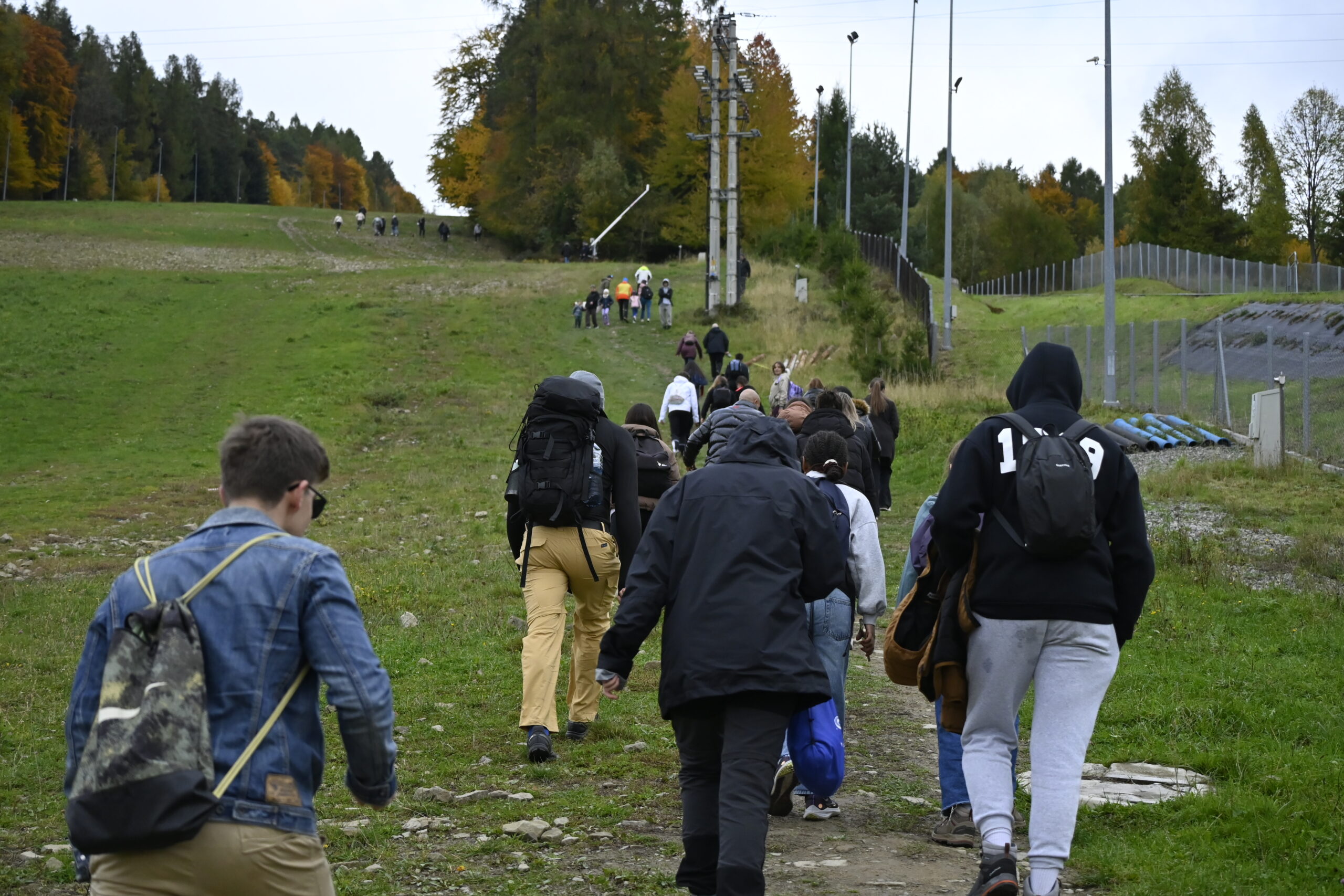
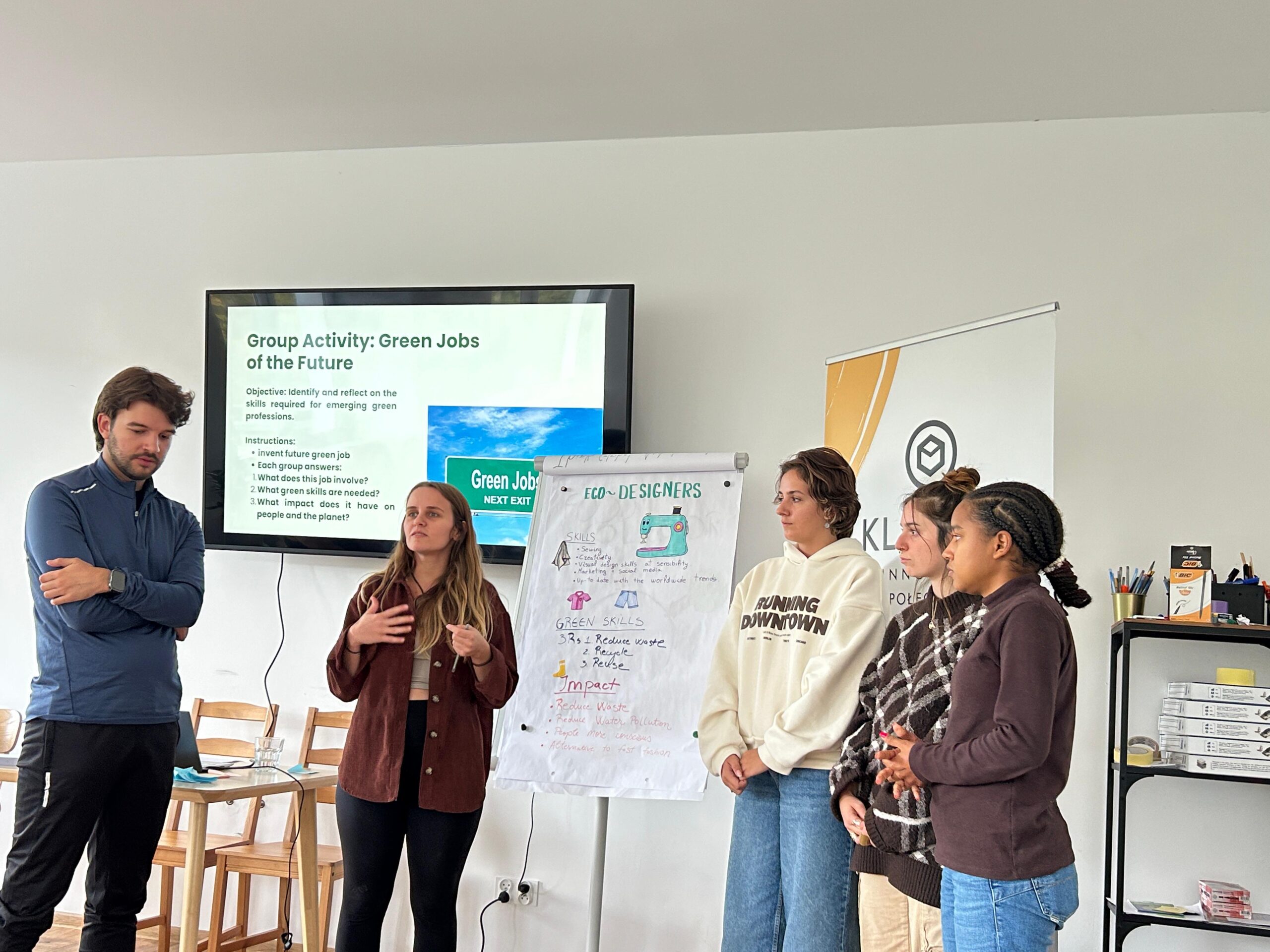
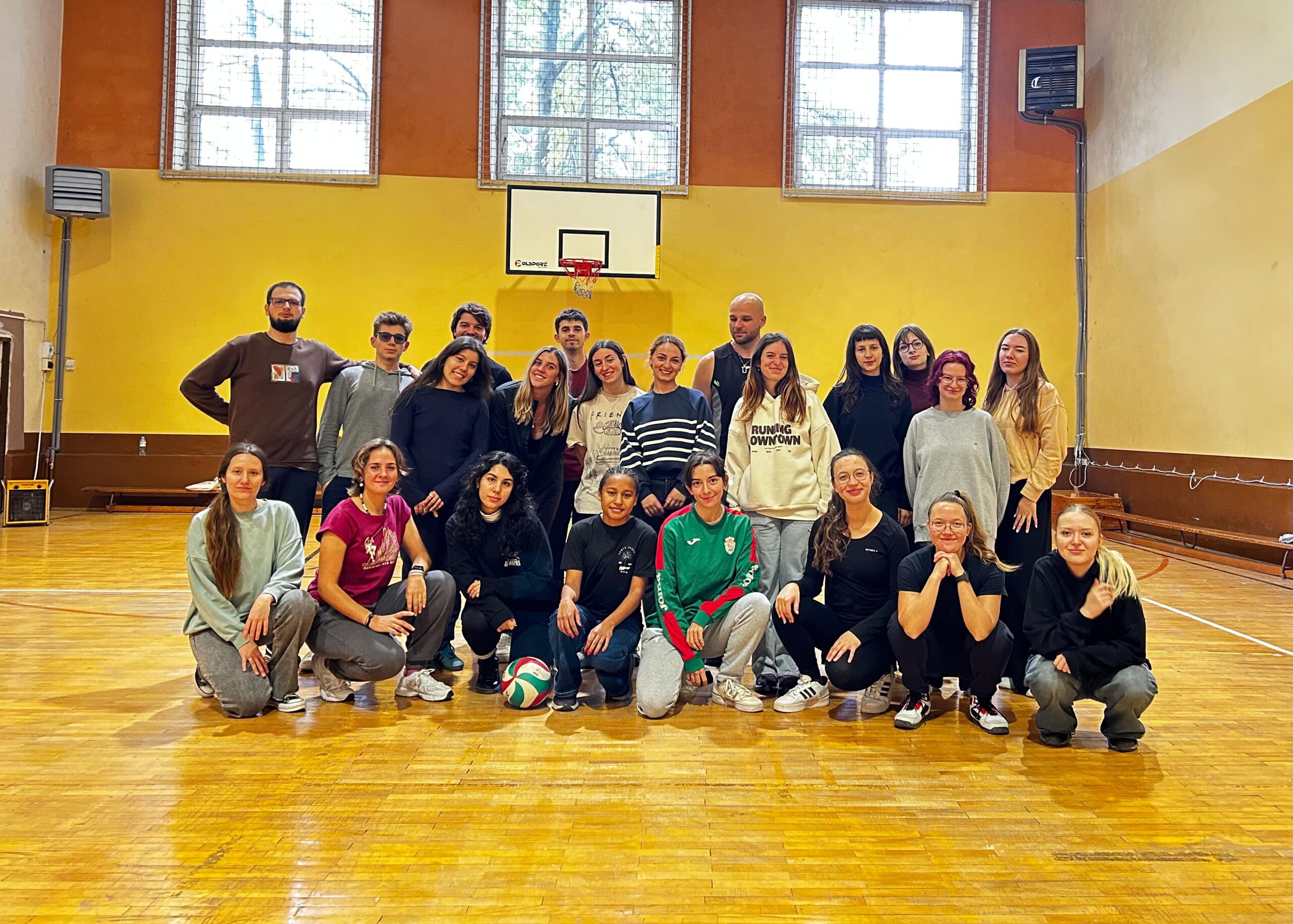
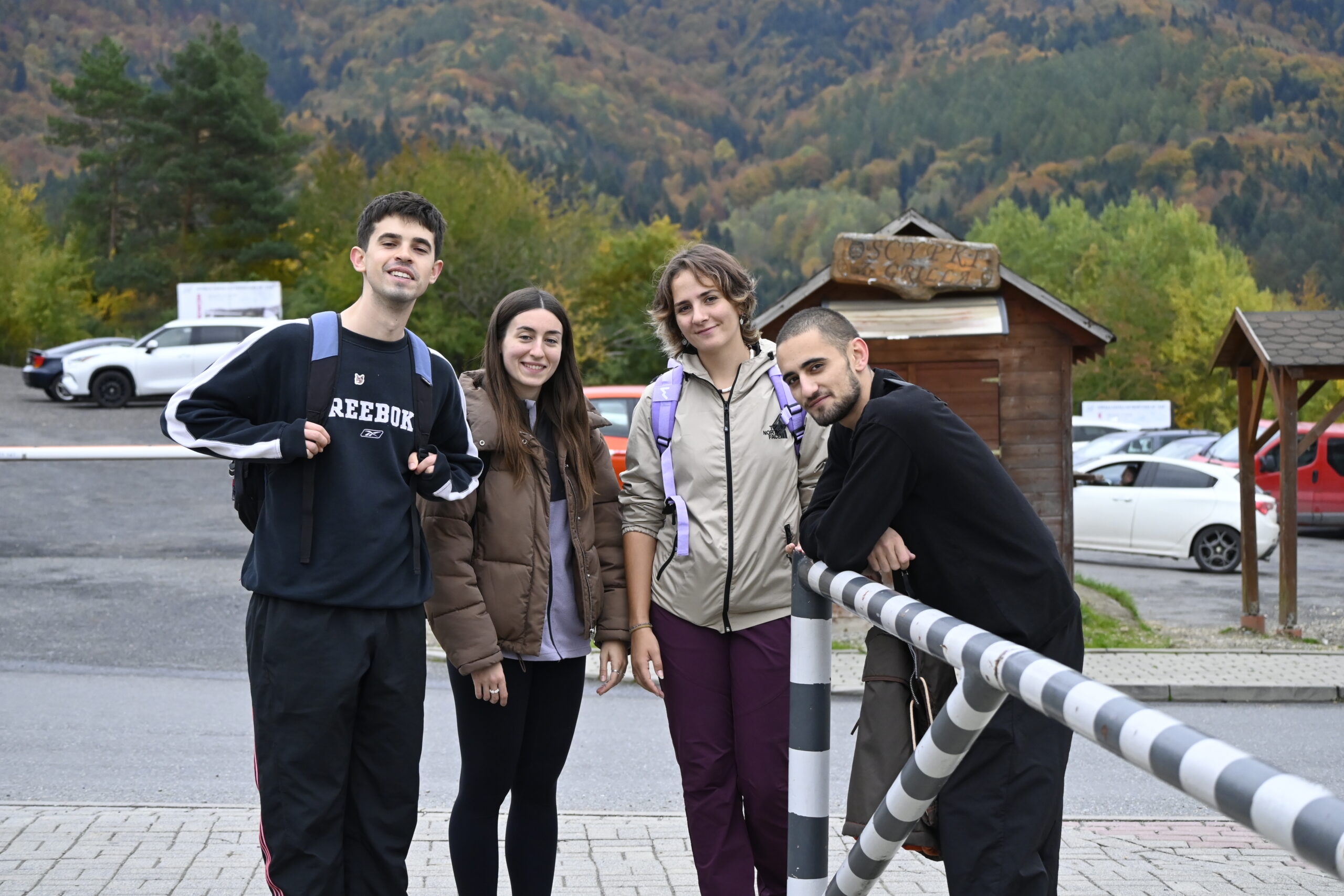
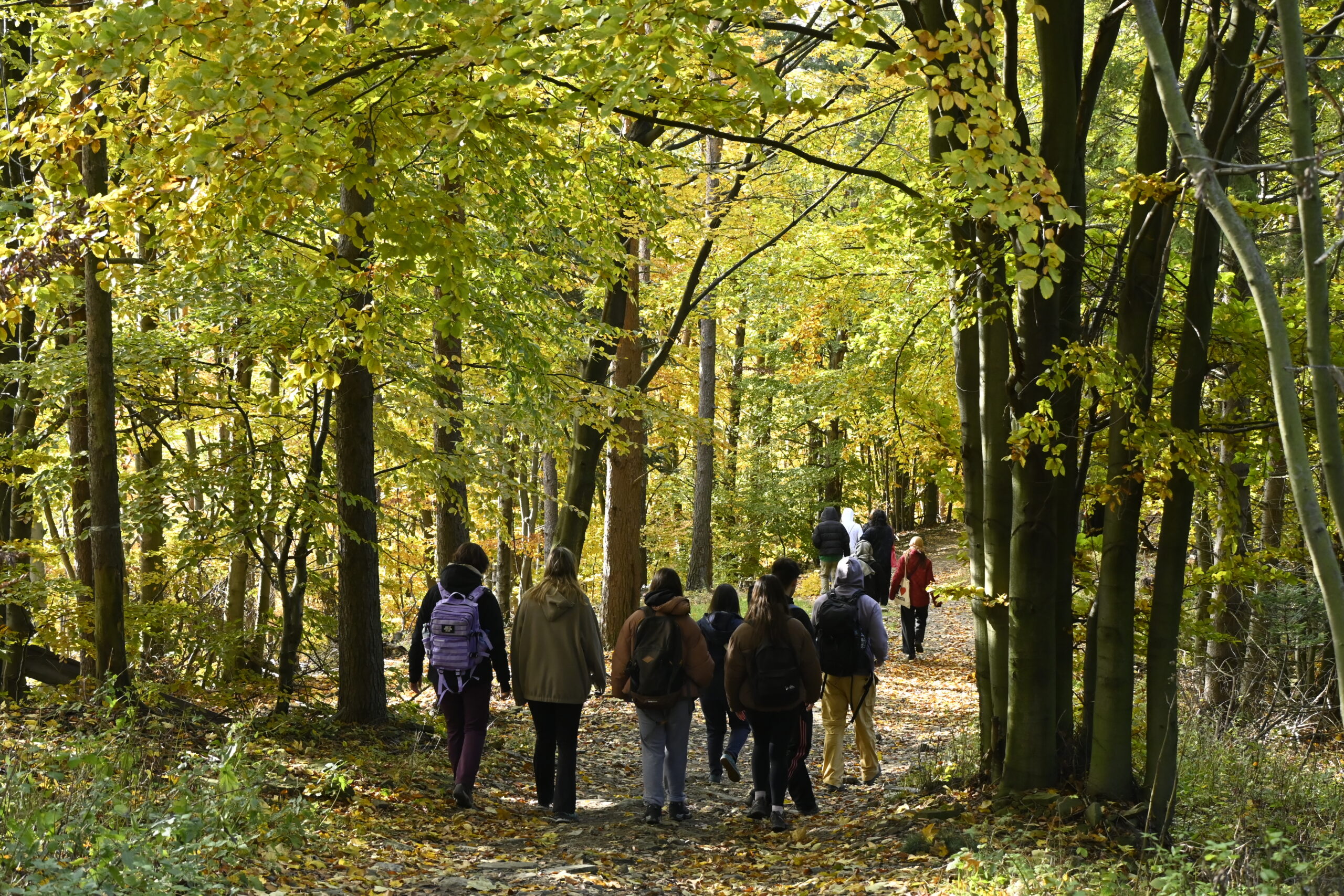

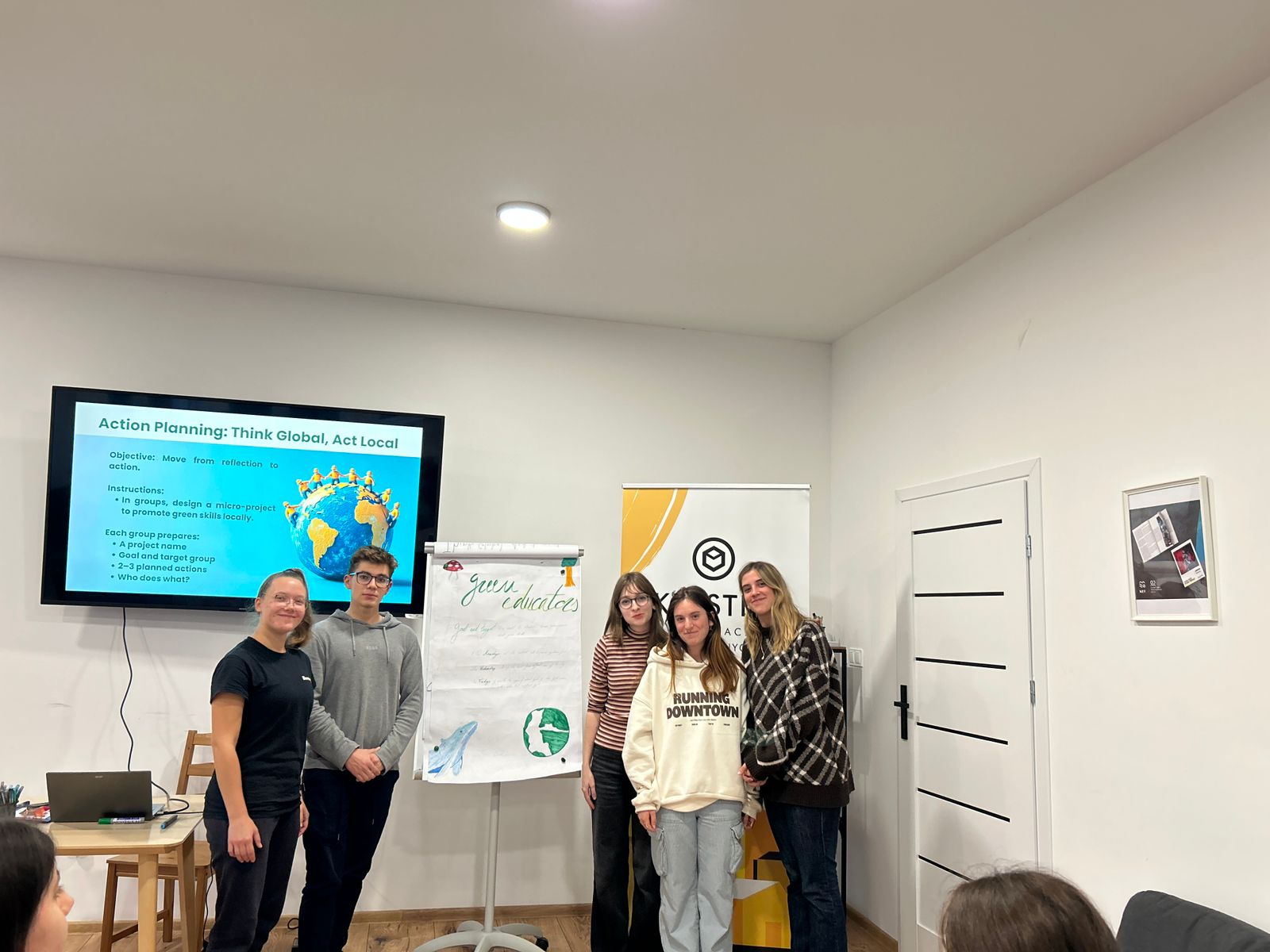
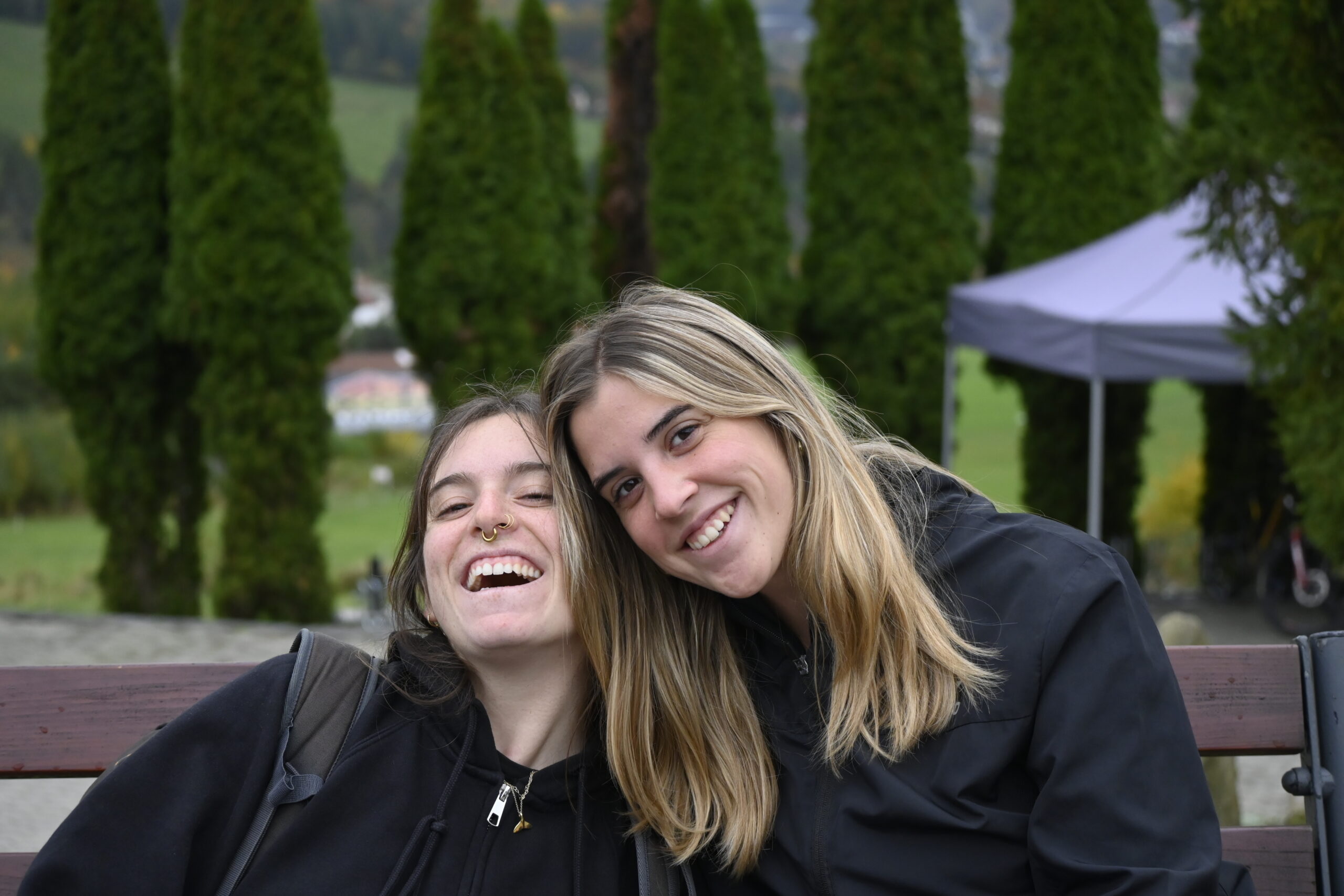
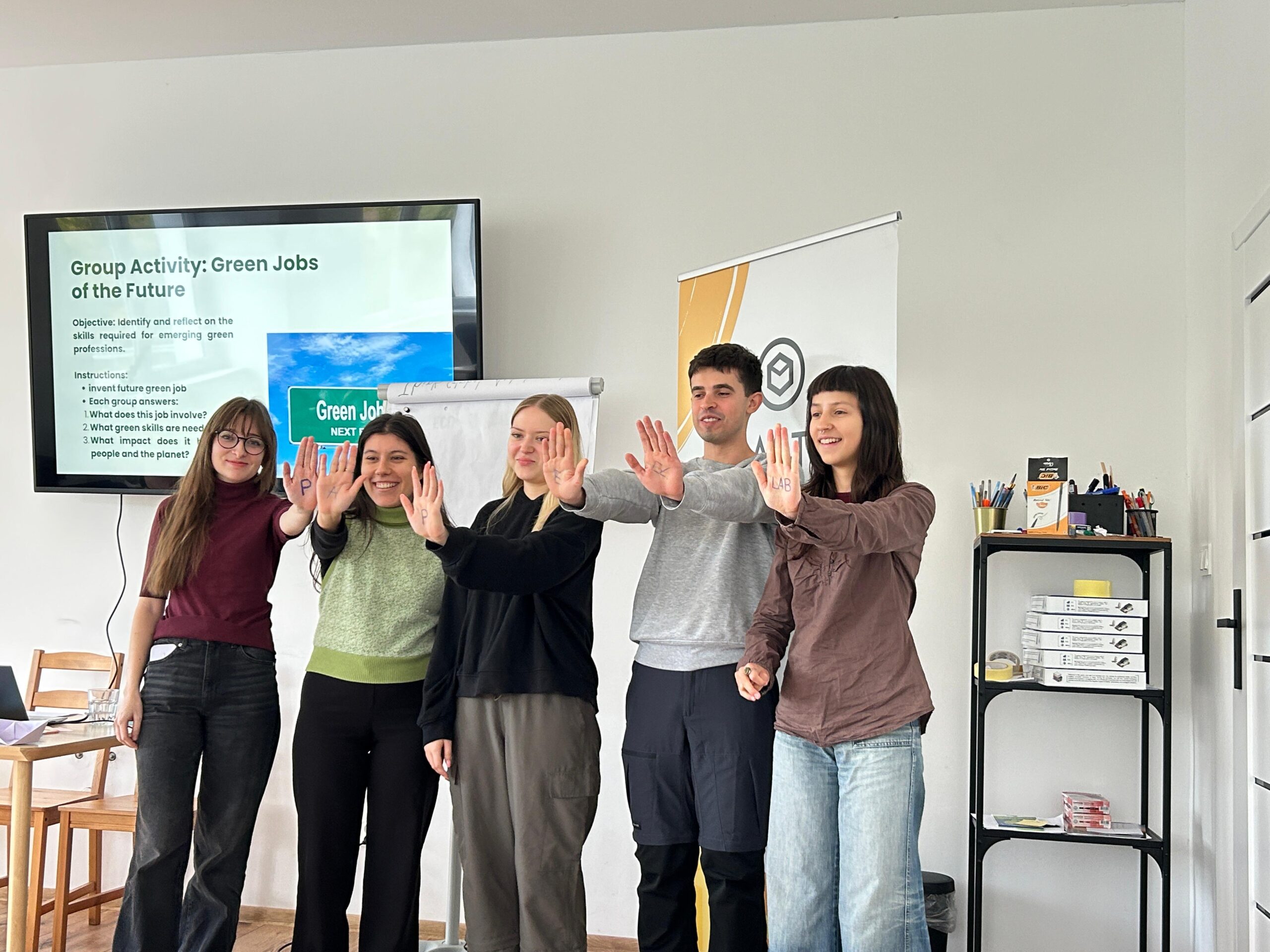
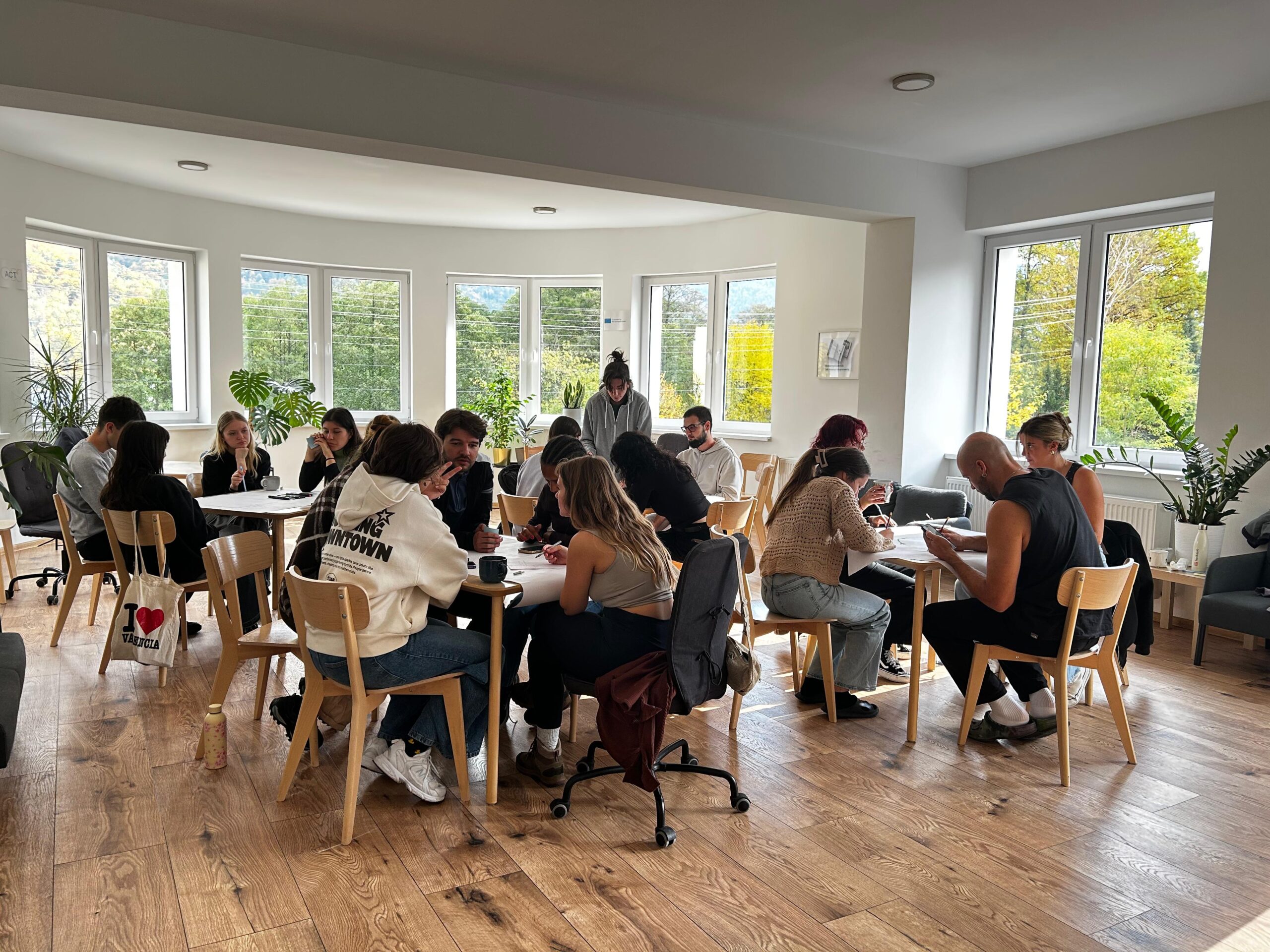
Partners & funding

Co‑Funded by the European Union. Views and opinions expressed are however those of the author(s) only and do not necessarily reflect those of the European Union or the Foundation for the Development of the Education System (FRSE). Neither the European Union nor FRSE can be held responsible for them.
The project focuses on the 5R principles (Refuse, Reduce, Reuse, Recycle, Rot) and the zero waste philosophy, providing practical solutions and inspiration for a more sustainable way of living. The G.E.A.R.S. project aims to develop and implement 10 interactive online modules on ecological practices, available in Polish, Slovak, and English. Another goal is the organization of 20 urban quests in Poland and Slovakia, allowing participants to explore local ecological initiatives. As part of the project, an educational comic book will also be created, illustrating participants’ journeys toward a more sustainable lifestyle. An essential component of the project is the development and accreditation of an educational program, which will be approved by the Ministry of Education in Slovakia and aligned with EU GreenComp standards. The final key activity involves the creation and distribution of “sustainability cabinets,” which will serve as educational spaces accessible to local communities.
Project parcipants:
The project is targeted at adults aged 21-60 who want to gain knowledge about ecology and apply it in their daily lives. It also includes adult educators and trainers looking for modern teaching tools for sustainability education. A key target group is local community members interested in learning about ecological initiatives in their surroundings. Additionally, the project addresses educational institutions and policymakers interested in supporting ecological educational programs.
The implementation of the project includes several key activities. First, project management will ensure smooth collaboration between partners and the timely execution of objectives. A crucial component is the transformation of an existing ecological education program into interactive online modules, allowing participants to acquire knowledge in a flexible and modern way. Practical activities will include urban educational quests—20 events in various cities across Poland and Slovakia, engaging participants in hands-on learning about sustainable lifestyles. A complementary element will be the creation of an educational comic book, which will present participants’ stories and ecological experiences in an accessible format. The project also includes the process of accrediting the educational program, which will enable its official recognition and integration into the adult education system in Slovakia. The final key activity involves the creation and distribution of sustainability cabinets, which will serve as local educational hubs and resources for individuals interested in ecological practices.

Funded by the European Union. Views and opinions expressed are however those of the author(s) only and do not necessarily reflect those of the European Union or the European Education and Culture Executive Agency (EACEA). Neither the European Union nor EACEA can be held responsible for them.
Nasze projekty
Partnerzy i finansowanie
Skontaktuj się
Spóldzielnia Socjalna
Zielone Śląskie
ul. Jana Siemińskiego 22
44-100 Gliwice
Zadzwoń: 579 643 667